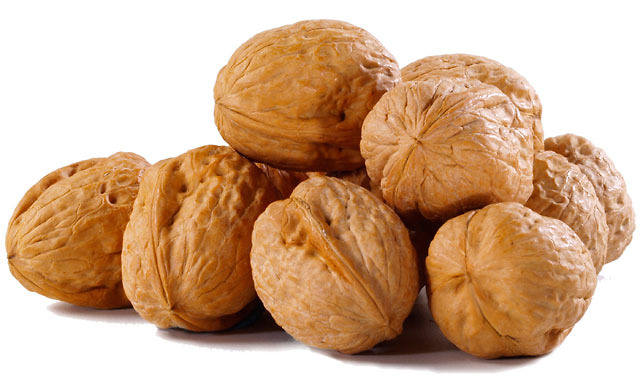According to a recent study conducted in the USA, the consumption of nuts could reduce the risk of developing colorectal cancer.
The researchers found that smaller tumor sizes were associated with a higher percentage of omega-3 in the tumor tissues. The incorporation of omega-3 fatty acids present in nuts caused a significant change in the expression profile of the nucleic acids present in the colorectal cancer tissue. That is to say, they were shown to reduce the inflammation and blood supply to the tumor, which led to a deceleration in the growth of the tumor.
Tania Mesa – Nutritionist and Nurse from Neolife
A study in mice with colon cancer demonstrated that those who consumed walnuts slowed the development of the tumor.
A new study by researchers at Harvard Medical School (USA) and published in the Journal of Nutritional Biochemistry (1), shows that nut consumption can reduce the development of colon tumors.
Walnuts are one of the most nutritious and healthy foods that exist, due to their antioxidant content (monounsaturated fatty acids, polyunsaturated fats, vitamin E and minerals). The nutritional properties are already well known most notably in the prevention of heart disease, diabetes and neurological disorders. But now, in addition to this long list we should add the slowing (deceleration) of colorectal tumor growth as they produce changes in the carcinogenic genes.
The micro ribonucleic acids (miRNA) are involved in the alteration of genetic expression. Research has shown that a diet rich in nuts causes significant changes in the expression profiles of miRNAs contained in colon cancer tissues.
The study analyzed two groups of mice who were injected with HT-29 colon cancer cells. The first group was fed 60 grams of nuts per day (equivalent to two servings per day), whilst the second group was fed a similar controlled diet, but without any nuts.
After 25 days, it was observed that the total amount of Omega-3 fatty acids, including the alpha-amino acid (ALA), a fatty acid vital for various body processes and known to reduce inflammation had increased up to 10 times in the tumor tissues of the mice fed with nuts.

There are multiple factors that can increase the risk of colorectal cancer: food, physical exercise, tobacco (smoking), alcohol consumption, age, family history, previous illnesses etc.
Colorectal cancer is one of the most prevalent tumors in Spain: there are approximately 20,000 new cases a year in men and 14,000 in women. In Europe alone, 150,000 new cases are detected every year. In Western countries it ranks second in the number of incidences, ranked only behind lung cancer in men and breast cancer in women. It accounts for approximately 10-15% of all cancers.
But what are the factors that, to a greater or lesser extent, increase the risk of suffering from this type of tumor:
- Food: diets rich in animal fats (red meat) and low in fiber increase the risk of suffering from this type of cancer.
- Physical inactivity: a sedentary lifestyle increases the risk of suffering from this disease.
- Tobacco use (Smoking): increases the risk of having polyps, which are usually the precursors of colorectal cancer.
- Alcohol consumption: alcohol may act to encourage the growth of colon mucosal cells, leading to the appearance of polyps.
- Age: the risk of developing this cancer increases with age, as it increases the likelihood of polyps presenting in the colon and rectum.
- Personal history of polyps: the appearance of adenomatous polyps increases the risk of suffering from this disease.
- Personal history of colorectal cancer: people diagnosed with a previous cancer have a higher risk of developing a second tumor in the colon or rectum.
- Inflammatory bowel diseases: the two main types of inflammatory diseases at this level are ulcerative colitis and Crohn’s disease. Both account for less than 1% of all colorectal cancers.
- Family history: in 5% of colon cancers, several genes have been identified, whose alteration can lead to syndromes that predispose an individual, to a greater or lesser extent, to the onset of bowel cancer.
Colon cancer causes, amongst other symptoms, blood in the stool, changes in stool frequency, narrower stools, tenesmus, abdominal pain or fatigue.
Colon cancer produces a series of symptoms that can vary depending on the location of the tumor within the large intestine:
- Blood in the stool: it is one of the most frequent symptoms of colon cancer. This can be red blood – more frequent in tumors of the sigmoid and descending colon – or black blood – which mixes with the feces, giving rise to black stools called melena-. After a certain amount of time bleeding or where the hemorrhage remains undetected or the doctor is not consulted for diagnosis and treatment, anemia usually presents. This anemia can produce, in turn, a series of symptoms such as a feeling of shortness of breath, tiredness, palpitations or dizziness.
- Change in bowel movement frequency: diarrhea or constipation may appear in people with normal bowel movements (most commonly interspersed periods of constipation with periods of diarrhea).
- Narrower stools: this occurs because the tumor is narrowing the bowel and does not allow the normal passage of stool.
- Tenesmus or sensation of incomplete evacuation: usually appears in tumors located in the most distal part of the colon.
- Abdominal pain: it is a frequent symptom, although it is usually a non-specific pain. When the tumor partially closes the caliber of the intestinal tube this leads to abdominal pain similar to cramps. In cases where the closure is full it is called intestinal obstruction, which is a serious clinical situation, which requires urgent medical assistance.
- Extreme fatigue or weight loss without an apparent cause: are general and non-specific symptoms that frequently occur in certain diseases, which includes advanced colon tumors.
There are two non-invasive predictive methods for colon cancer: septin 9 and fecal occult blood testing.
Colorectal cancer is one of the few cancers that can be diagnosed early, that is to say, before the person develops any symptoms. At the Neolife clinic we use two different tests:
- The test that detects the Septin 9 biomarker in the blood plasma. The presence of this biomarker is related to the existence of this type of cancer.
- The test for fecal occult blood in the stool (TSOH), which as its name indicates detects whether or not there is blood in the stool.
If the results of these tests are positive, a colonoscopy is used to visualize the source of the bleeding.
Therefore, colorectal cancer, despite the alarming figures, can be diagnosed early and treated during the early stages where survival rates are much higher. And not only that: you can even avoid the very onset of the disease.
At Neolife we focus on reducing or eliminating the previously defined risk factors, particularly in terms of food, alcohol, tobacco and physical exercise. We have taken steps to incorporate 30 grams of walnuts (preferably at night before bedtime) and supplemented by Omega-3 (369mg of EPA and 250 mg of DHA with antioxidant mixture) into the diets we prepare for our patients.
BIBLIOGRAPHY
(1) https://www.jnutbio.com/article/S0955-2863%2815%2900070-4/abstract.
